History of the Physiology Department, Shahid Beheshti University of Medical Sciences
The Physiology Department of Shahid Beheshti University of Medical Sciences was established in 1962. Initially, it operated in the former National University, with Dr. Mohsen Shokoohi-Nejad as its first head. Before the Islamic Revolution, esteemed professors such as Professor Movasaghi, Dr. Yazdani, and Dr. Abolghassem Amin were faculty members of the department.
Since 1979, the department has had several directors:
- Dr. Nier Rasaeian
- Dr. Farkhondeh Motamedi
- Dr. Abbas Foroutan
- Dr. Homa Manahji
- Dr. Afsaneh Elyasi
- Dr. Mahyar Janahmadi
- Currently, Dr. Mahyar Janahmadi serves as the department head.
The Master’s degree program was launched in 1981, followed by the specialized physiology program in 1983, and finally the Ph.D. program in 1993.
The Physiology Department is recognized as one of the leading physiology research centers in the country and has consistently pioneered modern research techniques such as immunohistochemistry, electrophysiology, neuroendocrinology, and pain studies.
Numerous research articles by faculty members are published annually in international scientific journals. Additionally, the department hosted the 9th National Congress of Physiology and Pharmacology, attracting over 1,000 national and international participants, and has organized several scientific workshops.
To date, more than 100 Master's, Ph.D., general medicine, and pharmacy dissertations have been completed within the department. Dr. Fereshteh Motamedi, a retired faculty member, held the presidency of the Federation of Asian and Oceanian Physiological Societies (FAOPS) from 1998 to 2002.
The department also serves as the editorial office for the Iranian Journal of Physiology and Pharmacology, with its editor-in-chief being a member of the faculty.
Objectives and Responsibilities of the Physiology Department
A - Educational Responsibilities
The Physiology Department is responsible for educating students at various academic levels, including general doctorate, undergraduate, master's, and Ph.D. programs across different university disciplines. Additionally, each year, a number of students are admitted to master’s and Ph.D. programs in physiology to be trained as skilled and dedicated specialists for educational and research duties.
B - Research Responsibilities
Another key mission of the department is the development and enhancement of research setups in cellular, molecular, and neuroscience fields. These initiatives aim to support both fundamental and applied research efforts.
Special Facilities and Capabilities of the Department
The Physiology Department is equipped with advanced laboratories dedicated to specialized and interdisciplinary research. Some of these laboratories include:
- Pain Research Laboratory
- Single Unit Recording Laboratory
- Single Channel Recording Laboratory
- Nutrition and Gastric Acid Secretion Laboratory
- Neurobiology Laboratory
- Behavioral Research Laboratory
- Electrophysiology of Memory and Learning Laboratory
- Intracellular Recording Laboratory
- Sensory Information Processing Laboratory
- Field Potential Recording Laboratory

